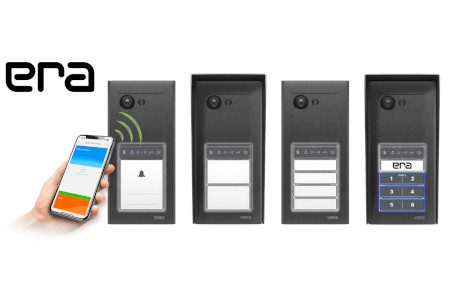The Physical Security Interoperability Alliance (PSIA) has released the test tool for its Physical Logical Access Interoperability (PLAI) specification.
PLAI has provided an open and effective solution for dynamic identity management, allowing employee identities and roles defined or revoked in an authoritative logical identity system; these can automatically propagate to one or more PLAI-compliant physical access control systems (PACS). PLAI synchronizes physical and logical identity management and access control and standardizes functions that typically have required custom programming to achieve. The availability of test tools for PLAI will assure companies a reliable implementation and an integration of their identity management system.
Already there are commercial implementations of PLAI, with Corporate Executive Board (CEB) an example of a successful implementation of a PLAI compliant PACS. “CEB is already benefiting from PLAI, with easy on- and off-boarding of employees. Logical identities and roles are simply imported and mapped into the physical access ecosystem making it more secure and simpler to manage,” said Kastle’s CTO Mohammad Soleimani. There are also a number of additional large customers who are in final stages of PLAI integration.
Microsoft Global Security, the company’s internal security operations group, manages more than 150,000 employee and contractor badges worldwide. It will deploy PLAI to integrate disparate physical access control systems which it inherited with the recent acquisition of the Nokia phone business. “By using PLAI with Microsoft Active Directory, which is the logical authoritative identity source at Microsoft, we will add functionality to extend our robust security model, and significantly reduce or avoid traditional support costs associated with different PACS systems,” says Mike Faddis, Director at Microsoft Global Security.
Additional Vendor/Customer Support
The PSIA also announced the release of its PLAI Implementation Guide, a step-by-step guide that will support vendors implementing the PLAI specification. “We’ve taken the experiences from other vendors who have implemented PLAI, along with our own experience with PACS and logical identities, and documented not only the technical aspects of how to implement a PLAI adapter, but also a range of other considerations that need to be incorporated into delivering PLAI as simply as possible,” said Darren Bain, CTO of RightCrowd and chairman of the PLAI work group.
In addition, the PSIA has expanded its FAQ’s on the organization’s web site. “We have compiled the questions most frequently asked about PLAI and provided them in a format that should satisfy any potential customer with interest in implementing the spec in their organization,” said David Bunzel, the Executive Director of the PSIA. For more information on PLAI, please connect to the All About PLAI link.
PSIA announces Test Tool for PLAI specification
About Security Buyer
Security Buyer is the leading authority in global security content, delivering expert news, in-depth articles, exclusive interviews, and industry insights across print, digital, and event platforms. Published 10 times a year, the magazine is a trusted resource for professionals seeking updates and analysis on the latest developments in the security sector.
To submit an article, or for sponsorship opportunities, please contact our team below.

Rebecca Spayne
Managing
EDITOR

Georgina Turner
Sales
Manager

Afua Akoto
Marketing Manager
Read the Latest Issue
Follow us on X
Follow us on X
Click HereFollow us on LinkedIn
Follow us on LinkedIn
Click HereAdvertise here
Reach decision makers and amplify your marketing






















